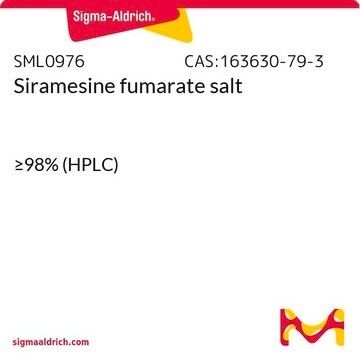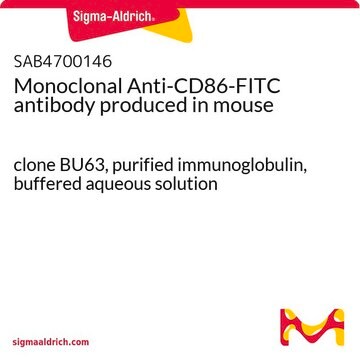06-680
Anti-Androgen Receptor Antibody
from rabbit, purified by affinity chromatography
Synonym(s):
Androgen receptor, Dihydrotestosterone receptor, Nuclear receptor subfamily 3 group C member 4
About This Item
Recommended Products
biological source
rabbit
Quality Level
antibody form
affinity isolated antibody
antibody product type
primary antibodies
clone
polyclonal
purified by
affinity chromatography
species reactivity
rat, human
species reactivity (predicted by homology)
bovine (based on 100% sequence homology), canine (based on 100% sequence homology), horse (based on 100% sequence homology), mouse (based on 100% sequence homology)
technique(s)
ChIP: suitable (ChIP-seq)
flow cytometry: suitable
immunocytochemistry: suitable
immunohistochemistry: suitable
immunoprecipitation (IP): suitable
western blot: suitable
NCBI accession no.
UniProt accession no.
shipped in
wet ice
Gene Information
bovine ... Ar(280675)
dog ... Ar(403588)
human ... AR(367)
mouse ... Ar(11835)
rat ... Ar(24208)
General description
Immunogen
Application
Flow Cytometry Analysis: A 1:300 dilution from a representative lot detected Androgen Receptor in 0.2X10E6 MCF-7 cells.
Chromatin Immunoprecipitation Analysis: A representative lot from an independent laboratory immunoprecipitated Androgen Receptor from DU145 cells stably transfected with a 7 kD-PSA promoter, different AR poly A lentiviral vectors, and a Flag-tagged hZMIZ1 vector (Li, X., et al. (2011). PLoS One. 6(9):e25040.).
Immunohistochemistry Analysis: A representative lot from an independent laboratory detected Androgen Receptor in embryonic rat tissue, neonatal rat testis tissue, and adult rat testis tissue (Nation, T., et al. (2010). J Pediatr Surg. 46(8): 1539-1543.).
Immunocytochemistry Analysis: A representative lot from an independent laboratory detected Androgen Receptor in MCF-7 cells stabily transfected with Androgen Receptor (Ghatge, R. P., et al. (2005). Breast Cancer Res. 7(6):R1036-1050.).
Chromatin Immunoprecipitaton-Sequence Analysis: A representative lot from an independent laboratory immunoprecipitated Androgen Receptor from LNCaP cell lysates under certain treated conditions (Zhao, J. C., et al. (2012). Genome Res. 22(2):322-331.).
Immunocytochemistry Analysis: A 1:1000 dilution from a representative lot detected Androgen Receptor in LNCaP cells.
Epigenetics & Nuclear Function
Transcription Factors
Quality
Western Blotting Analysis: A 1:1,000 dilution of this antibody detected Androgen Receptor in 10 µg of LNCaP cell lysate.
Target description
Physical form
Storage and Stability
Disclaimer
Not finding the right product?
Try our Product Selector Tool.
Storage Class Code
12 - Non Combustible Liquids
WGK
WGK 1
Flash Point(F)
Not applicable
Flash Point(C)
Not applicable
Certificates of Analysis (COA)
Search for Certificates of Analysis (COA) by entering the products Lot/Batch Number. Lot and Batch Numbers can be found on a product’s label following the words ‘Lot’ or ‘Batch’.
Already Own This Product?
Find documentation for the products that you have recently purchased in the Document Library.
Our team of scientists has experience in all areas of research including Life Science, Material Science, Chemical Synthesis, Chromatography, Analytical and many others.
Contact Technical Service








